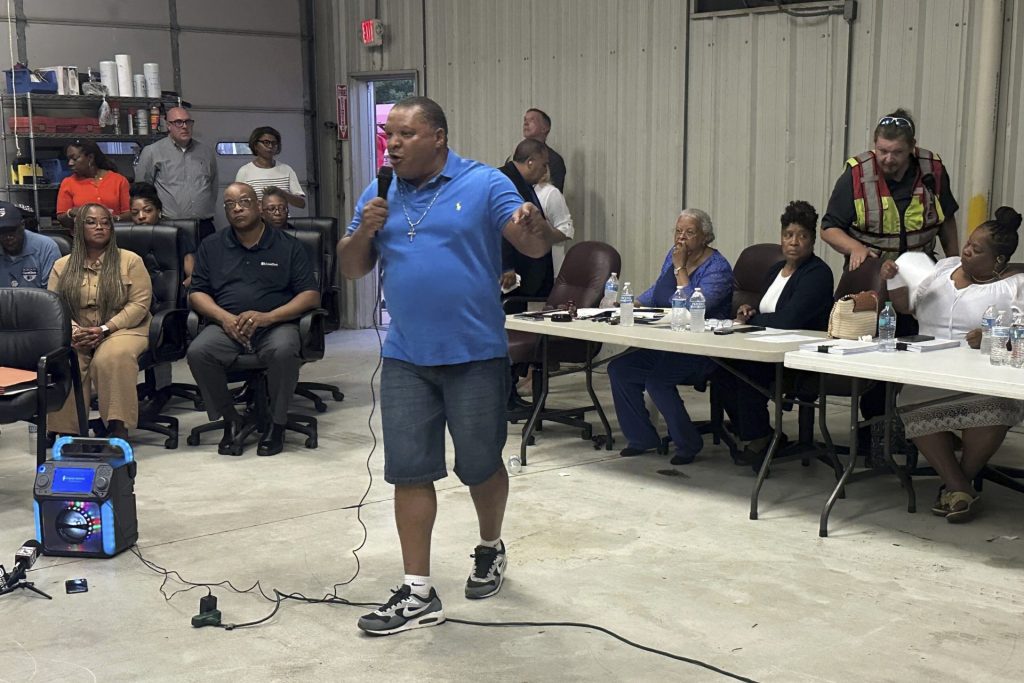Tennessee town is latest to let ICE use closed prison as a detention center

A small town in Tennessee voted to reopen a closed prison as an immigration detention facility to assist President Donald Trump’s pledge of mass deportations. The town’s government approved the plan, despite opposition from dozens of residents who spoke at a public meeting.
City leaders in Mason, Tennessee, voted to approve a contract with CoreCivic, a private prison operator, and U.S. Immigration and Customs Enforcement (ICE) to run a closed prison as an immigration detention center. Throughout the meeting, citizens voiced their displeasure with resuming operations at the facility.
The lock-up closed in 2021 after former President Joe Biden instructed the Justice Department to not renew contracts with private prison companies. Trump reversed that policy in January. Mason joined a list of places throughout the country signing similar contracts with ICE to house detained immigrants.
Mayor Eddie Noeman, who immigrated to the U.S. from Egypt, said at the meeting that he supported reopening the facility to boost the economy of Mason, a town of about 1,300 northeast of Memphis. When the facility was open, it employed nearly 300 people.
“We have to get together to do whatever we supposed to do for our community,” he said as protesters shouted in opposition of ICE’s facility.
Noeman and Vice Mayor Reynaldo Givhan didn’t immediately respond to Straight Arrow News’ request for comment.
No information was available on when the facility would open.
Residents opposed deal
Charles Watkins, a local resident, isn’t supportive of the plan. He told the town board that Mason’s legacy will be tarnished by opening the facility. He added the town has a special tax break that would help the economy as opposed to contracting with ICE.
“There’s got to be better jobs than that,” he said. “Are you telling me these are the jobs that you want for your kids?”
Jerry Langford, a representative of CoreCivic, told the group Tuesday the facility will employ at least 250 people with starting salaries at $55,000 a year. He added that federal authorities will be auditing and scrutinizing operations to ensure its running smoothly and adhering to legal requirements.
Board member Virginia Rivers voted against the contracts and said the center would harm the community. She recalled stories across the country where immigration agents detained people, separating families and splitting a community.
“The majority of people being deported are lawful citizens living peaceful lives without any criminal background,” Rivers said. “Yet they are being separated from their families.”
Detention centers in small town America
The Tennessee town would join a short list of places throughout the country that are operating or plan to open immigration detention centers. In August, Homeland Security Secretary Kristi Noem announced a center is opening in Indiana that she called the “Speedway Slammer.”
The new 1,000-bed facility will be at the former Miami Correctional Facility in Bunker Hill, just north of Indianapolis. The massive budget and tax bill recently passed by Congress greatly expanded ICE’s budget, allowing the agency to add 80,000 immigrant-detention beds nationwide.
Indiana Gov. Mike Braun, a Republican, signed an executive order in January directing the state’s law enforcement to cooperate with immigration enforcement, according to the order. That included signing agreements with federal agencies to carry out Trump’s deportation plans.
ICE eyed facilities in California, Michigan, Kansas, New Jersey and Texas to hold unauthorized immigrants. They’ve partnered with GEO Group and CoreCivic to operate some of the centers. The two companies and the Federal Connectional Institution in Dublin, California, have been embroiled in controversies that led former President Biden to shutter their facilities.
Construction in Florida paused 14 days
In Florida, U.S. District Court Judge Kathleen Williams suspended construction work for 14 days at an immigration-detention center in the Everglades known as “Alligator Alcatraz.” Williams is reviewing a lawsuit that several environmental groups filed against Noem and Florida officials, arguing the facility violated several environmental laws.
The Miccosuke Tribe of Indians joined the lawsuit in July and argued the center threatened the tribe’s land and people.
The order expired on Tuesday.





